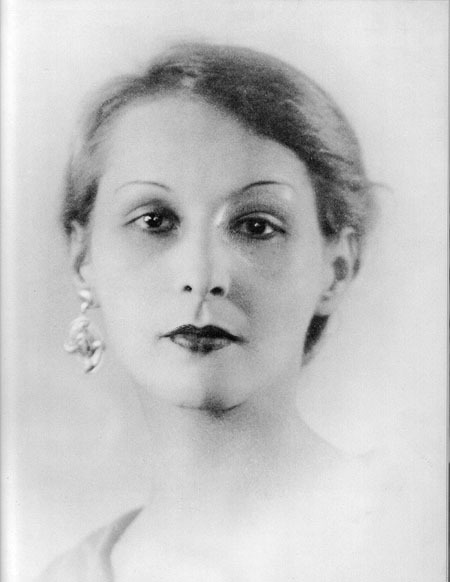Idolize, to make of an idea a thing, to objectify. In this way an idea of harvest is found in a stone woman with stone breasts.
All we as leaves in the shock of it:
spring–
one dull gold bounce and you’re there.
Call for a moratorium on poems that reference themselves as poems
…. Similar to that songwriting trick of, “Whoa ah oh, and that’s why I wrote this song for you, girl. Ooo lalala.” OK, it feels like a neat trick when you’re doing it, but all it does now is confirm the self-congratulatory stereotype about poets, the writer’s amazement that he could be writing a poem –a poem!– in this day & age…
It’s not exclusively a post-modern gesture (being meta referential). Shakespeare, Donne & others worked in references to the fact of writing the poem in the poem, often as a means of seduction (“and look, look what I’m doing for you, my lady”)… Too many poets do this today.
New tricks, please!
Poetry = Bad Faith?
“…that I was a fraud had never been in question–who wasn’t? Who wasn’t squatting in one of the handful of prefabricated subject positions proffered by capital or whatever you wanted to call it, lying every time she said ‘I’; who wasn’t a bit player in a looped infomercial for the damaged life? If I was a poet, I had become one because poetry, more intensely than any other practice, could not evade its anachronism and so constituted a kind of acknowledgment of my own preposterousness, admitting my bad faith in good faith, so to speak. I could lie about my interest in the literary response to war because by making a mockery of the notion that literature could be commensurate with mass murder I was not defending the victims of the latter, but the dilettantes of the former, rejecting the political claims repeatedly made by the so-called left for a poetry radical only in its unpopularity. I had been a small-time performance artist pretending to be a poet, but now, with an alarming fervor, I wanted to write great poems.”
–Ben Lerner, Leaving the Atocha Station
The texture of et cetera
“I would begin to feel a rush of what I considered love, first for the things at hand: the swifts, if that’s what they were, hopping in the dust, the avenues of old-world trees, the stone statues of kings and queens with whom the tourists pose, love for the glare off El Estanque, the park’s artificial lake. Love for Topeka: the chicken hawk atop the telephone poll, the man-child with the flare gun tucked into his sweatpants, the finger lost to snapping turtle or firework; love for the bully and his neck beard, a love only a mother could face. Love for all my sitters, except James; love for the wrestler falling from the water tower where he’d tried to represent. Then for Providence: the first breakdown in the stacks, running lines of prescription something with the dim kids of the stars, emerging from a tunnel or sleep into New York, redefining ‘rich,’ love for the unread book of poems, Cyrus and our walks. But most intensely love for that other thing, the sound-absorbent screen, life’s white machine, shadows massing in the middle distance, although that’s not even close, the texture of et cetera itself.”
-Ben Lerner, Leaving the Atocha Station
Describing the detachment and appreciation of life that comes from being in a new place (in this case Madrid). I get this feeling being on an airplane.
There are some things one cannot seize by realism, but by poetry. It is a matter of language.
Paragraph like a poem from Anaïs Nin
 “It was not only that June had the body of the women who climbed every night upon the stage of music halls and gradually undressed, but that it was impossible to situate her in any other atmosphere. The luxuriance of the flesh, its vivid tones, the fevered eyes and the weight of the voice, its huskiness, became instantly conjugated with sensual love. Other women lost this erotic phosphorescence as soon as they abandoned their role of dance-hall hostesses. But June’s night life was internal, it glowed from within her and it came, in part, from her treating every encounter as either intimate, or to be forgotten. It was as if, before every man, she lighted within herself the lamp lighted by waiting mistresses or wives at the end of the day, only they were her eyes, and it was her face which became like a poem’s bedchamber, tapestried with twilight and velvet. As it glowed from within her, it could appear in totally unexpected places, early in the morning, in a neglected café, on a park bench, on a rainy morning in front of a hospital or a morgue, anywhere. It was always the soft light kept through the centuries for the moment of pleasure.”
“It was not only that June had the body of the women who climbed every night upon the stage of music halls and gradually undressed, but that it was impossible to situate her in any other atmosphere. The luxuriance of the flesh, its vivid tones, the fevered eyes and the weight of the voice, its huskiness, became instantly conjugated with sensual love. Other women lost this erotic phosphorescence as soon as they abandoned their role of dance-hall hostesses. But June’s night life was internal, it glowed from within her and it came, in part, from her treating every encounter as either intimate, or to be forgotten. It was as if, before every man, she lighted within herself the lamp lighted by waiting mistresses or wives at the end of the day, only they were her eyes, and it was her face which became like a poem’s bedchamber, tapestried with twilight and velvet. As it glowed from within her, it could appear in totally unexpected places, early in the morning, in a neglected café, on a park bench, on a rainy morning in front of a hospital or a morgue, anywhere. It was always the soft light kept through the centuries for the moment of pleasure.”
From the Diary, Volume I, writing about June (pictured), Henry Miller’s wife.
I especially love "the lamp lighted by waiting mistresses or wives at the end of the day” and “a poem’s bedchamber, tapestried with twilight and velvet” (the idea that a poem is like a little mansion, with different rooms for different functions). “In a neglected café, on a park bench, on a rainy morning in front of a hospital or a morgue” also calls up Paris to me…
Other 2011 reading
Poetry
Poemas y antipoemas – Nicanor Parra
Everybody Loves The Situation – Michael Cirelli
Skin, Inc. – Thomas Sayers Ellis
Come on All You Ghosts – Matthew Zapruder
D. Nurkse
The Beauty of the Husband – Ann Carson
Books I didn’t finish
60 Stories (read about 4) – Donald Barthelme
The White Album – Joan Didion (only the title essay, though I was blown away by it. The rest were too time/place specific)
A Supposedly Fun Thing I’ll Never Do Again & Other Essays – David Foster Wallace (only read that one essay, that was enough)
Necromancer (I was interested in the science fiction elements, but I couldn’t get past page 3 -that worn-out detective/Blade Runner character is too played out at this point. Maybe not when this book was written…)
To compare to 2010, see here.
Piano Solo
Since a man’s life is nothing more than action in the distance,
A bit of foam sparkling inside a glass,
Since trees are nothing but trembling furniture:
Nothing but chairs and tables in perpetual motion
Since we, ourselves, are nothing more than beings
(Just as the god himself is nothing but the god)
Since we don’t speak in order to be heard
but rather so that others will speak
And the echo precedes the voice that produces it,
Since we don’t even have the consolation of
chaos in the garden that yawns and fills with air,
A puzzle that must be solved before dying
In order to calmly resuscitate
When a woman has been used in excess
Since there is also a heaven in hell,
Let me do some things, too:
I want to make a noise with my feet
And I want my soul to find its body.
–Nicanor Parra (quick translation by echoseeker, alternate translation by W.C. Williams here)

